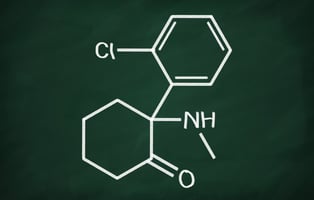Some Neuropsychiatric Symptoms Increase Dementia Risk for Those With Mild Cognitive Impairment

Older individuals with mild cognitive impairment (MCI) who have depressive, hyperactive, and/or psychotic symptoms are at higher risk of developing dementia than are older people with MCI with mild or no neuropsychiatric symptoms, according to a report in the American Journal of Geriatric Psychiatry. Those with psychotic symptoms (delusions and hallucinations) had the greatest risk of developing dementia.
“Our results suggest that the structure of neuropsychiatric symptoms warrants further consideration in classification models of mild cognitive impairment to better predict the risk of disease progression,” wrote John Hanfelt, Ph.D., of the Goizueta Alzheimer’s Disease Research Center at Emory University School of Medicine and colleagues.
They analyzed data on neuropsychiatric symptoms (NPS) among 7,971 patients (average age: 73 years) diagnosed with MCI who were enrolled in the National Institutes of Health’s Alzheimer’s Disease Centers between June 2005 and December 2019. Neuropsychiatric features were evaluated using the Neuropsychiatric Inventory Questionnaire, a rating of 12 behaviors including delusions, hallucinations, agitation/aggression, depression/dysphoria, apathy/indifference, elation/euphoria, anxiety, disinhibition, irritability/lability, aberrant motor behavior, nighttime behaviors, and appetite/eating. Each neuropsychiatric feature was scored as either absent or present if it occurred in the previous month. Participants had follow-up assessments annually, and the time from initial visit to onset of dementia and time to death was recorded.
The researchers categorized participants into four subgroups based on their symptoms:
- Mild or no NPS: 50% reported mild or no neuropsychiatric symptoms.
- Affect or negative mood: 27% reported depression, anxiety, apathy, nighttime disturbance, and/or change in appetite.
- Hyperactive: 14% reported agitation, irritability, and/or disinhibition.
- Psychotic with additional severe NPS: 9% reported delusions and/or hallucinations, as well other NPS.
A total of 2,346 patients (29% of the total sample) eventually developed dementia. Individuals with psychotic symptoms had a 64% higher chance of developing dementia than did those with mild neuropsychiatric symptoms. Those with negative mood symptoms had a 39% greater risk, and those with hyperactive symptoms had a 35% greater risk.
“Our findings and the results of other studies suggest the value of considering neuropsychiatric symptoms in addition to cognitive features in classification models of MCI,” the researchers wrote. “Future research is needed to further understand the mechanisms contributing to the presence of NPS and their role in disease progression.”
For related information, see the American Journal of Psychiatry article “Predicting Dementia: Is it Ready for the Clinic?”
(Image: iStock/fzant)
Time to Vote in APA’s 2022 Election!
The voting period for APA’s 2022 election is now open. You can vote by using the emailed ballot you should have received by now or clicking on “Vote Today” on APA’s website. Take time to learn more about this year’s candidates by reading the Special Edition APA Election Newsletter and viewing the archived town halls in which candidates responded to key questions. The deadline to vote is January 31 at 11:59 p.m. ET. Your vote matters to the future of APA and psychiatry!





